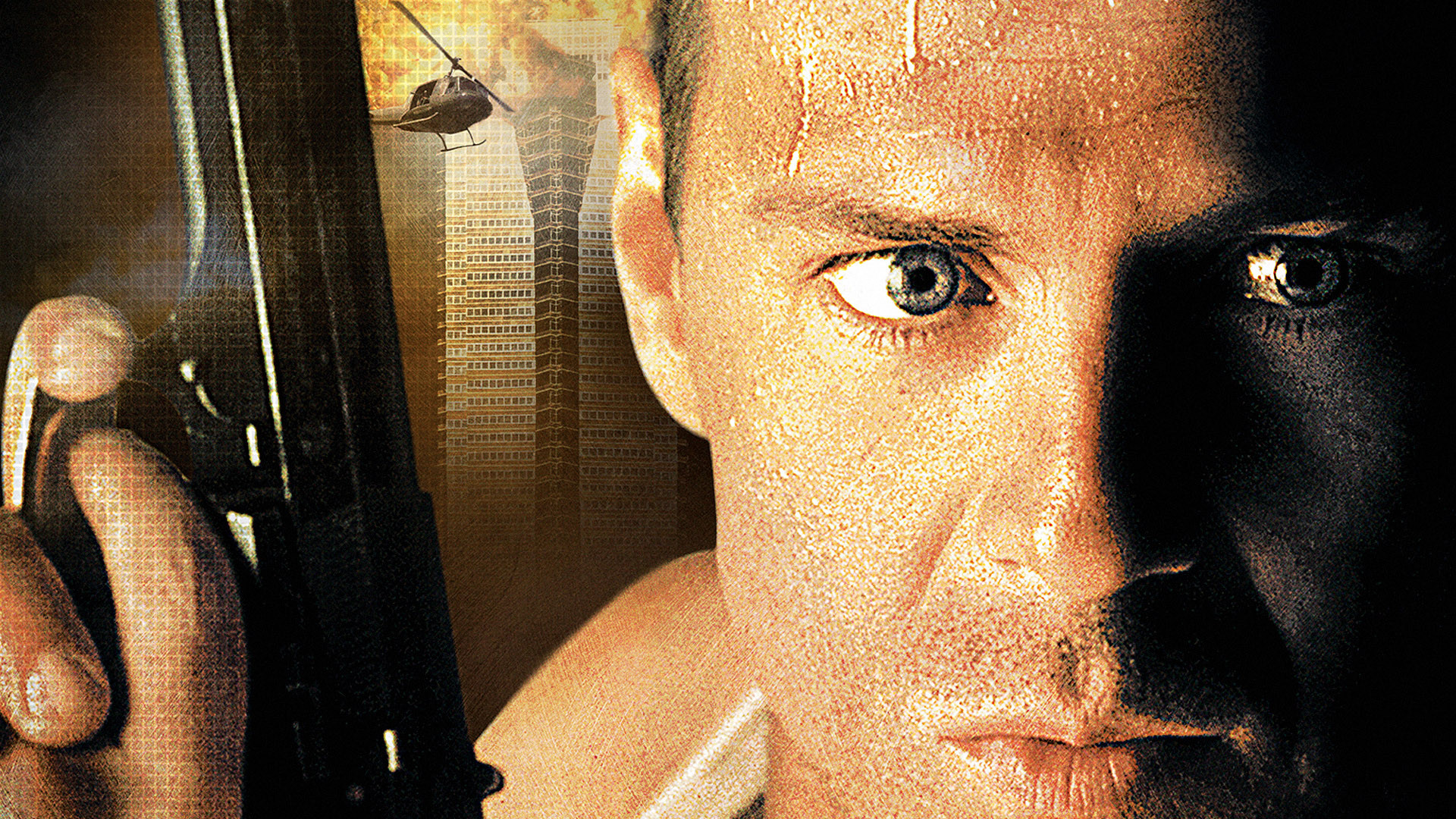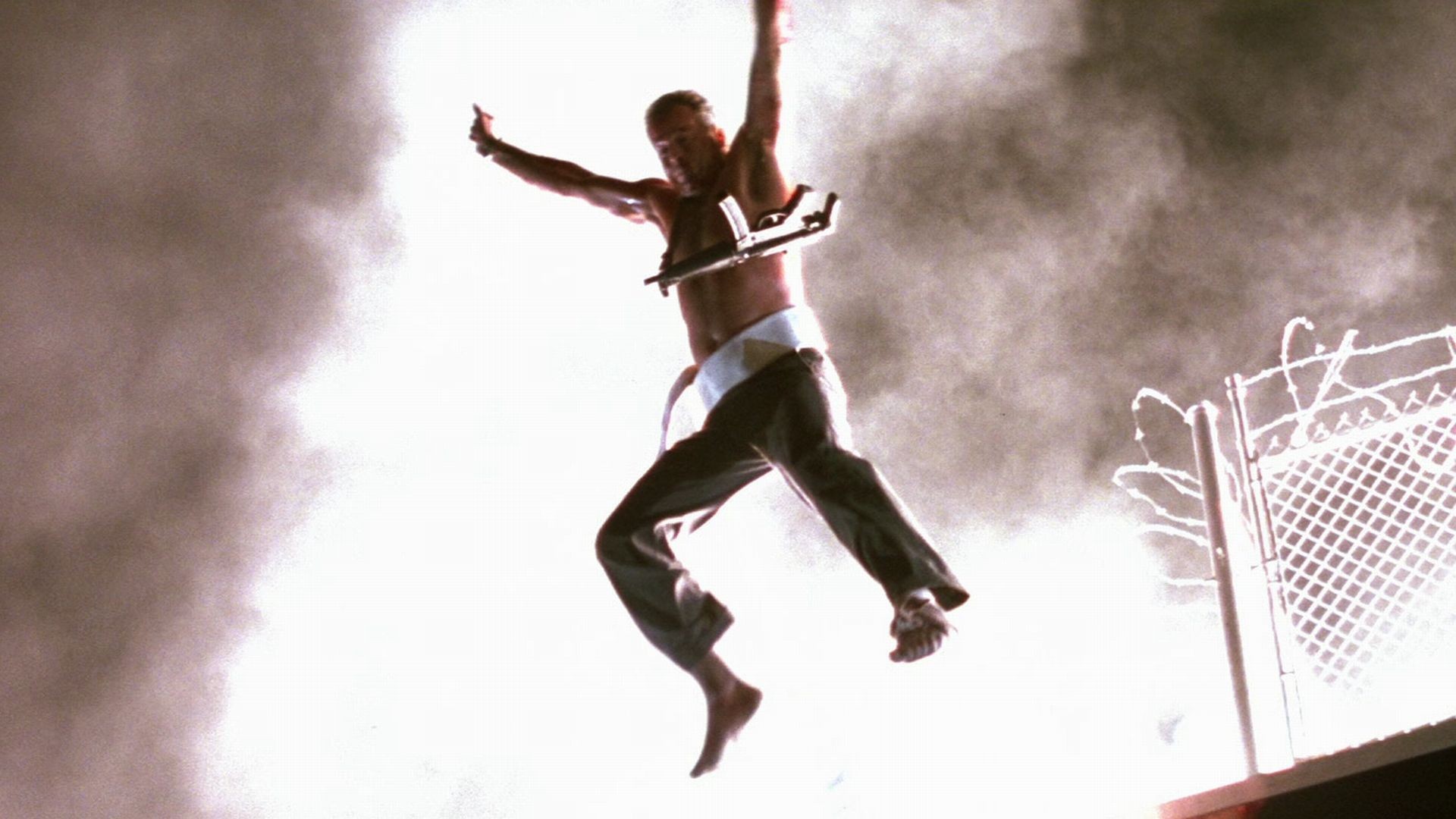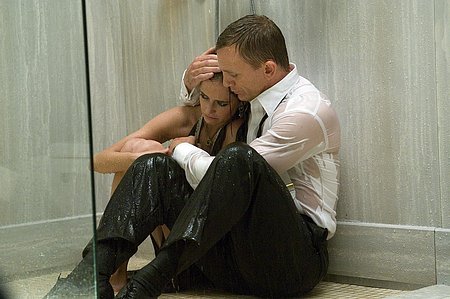Making violence have meaning was much easier to achieve in a world where any gun held only one shot and most of the violence was performed with sword or dagger. In the words of Frank Miller’s Batman, ‘We kill too often because we've made it easy… too easy… sparing ourselves the mess and the work.’ If you’re going to kill someone with a sword or knife, there’s a certain commitment to the deed, as it will take work. What a good story-teller can do is make taking a life work, re-create that commitment, and never make it casual or easy.
Here’s a modern example of violence with consequence – DIE HARD. Not the second, fourth, or fifth installments of the series, but definitely the original, and to some extent the third.

Most everyone agrees that the original DIE HARD is, if not the pinnacle of the Action genre, certainly a touchstone and model to be emulated. But what producers and writers mistakenly focus on is the set-up – one man against twelve villains in a high rise – and not what makes the film so compelling, which is the humanity of John McLane.
In DIE HARD, surviving hurts. The violence is messy, and has unintended consequences. John is so battered by the end that his wife doesn’t recognize him. He’s been shot, beaten, and had to run (or hop) across broken glass. Of course, this is Hollywood, so they didn’t go the extra mile of NOTHING LASTS FOREVER, the book upon which the film is based, and have Holly go out the window with Hans, killed by that damned wrist-watch, the symbol of her success. But at the end there is a real catharsis. John suffered to do what was hard, what was right.
That he did so with grim humor makes him more heroic. His were not James Bond-like coy tag-lines after an enemy’s death. McLane’s humor was bravado, a way to keep up a brave face against the enemy. But we also see his guard down, in that great monologue where he asks the cop outside to apologize to his wife for him. And also in that moment of pure honesty. "Please, God, don't let me die."

Speaking of Bond, there is a reason I enjoyed CASINO ROYALE more than any other Bond film in years, perhaps ever. I am a huge Bond fan, but have cared less and less for the films over time. I’ll still watch the original trio of Connery’s films, OHMSS, THE LIVING DAYLIGHTS and maybe GOLDENEYE. But CASINO ROYALE was a return to the Bond of Ian Fleming, the Bond of the books, the damaged, cynical man who kills for his government and who doesn’t get the girl. Twice in the books Bond fell truly in love. Both times, the woman he loved died – once by her own hand, once murdered. While the fantasy of Roger Moore’s Bond was childishly fun to watch, those films have no weight. They don’t matter the way that CASINO ROYALE and SKYFALL do. Because violence has consequences.

Here’s a weird one. I enjoyed the movie TAKEN. And I remember how much of a badass Liam Neeson’s character was. But I don’t remember his name, or much of any of the fighting. I remember his daughter being dragged out from under the bed. That was the only human moment in that film.
The trouble with films like TAKEN or the DIE HARD knock-offs, which try to replicate the original’s formula, is the indestructibility of the hero. Because the explosions have to be bigger, the violence bigger, there’s less and less room for humanity. And it’s humanity, not the lack of it, that makes an Action film great. Jason Bourne’s search for his identity; Aragorn’s reluctance to lead juxtaposed against his natural ability; Tony Stark’s growth from naïve weapon-maker to arrogant protector; and of course, the greatest of all Action heroes, Indiana Jones. Remember that scene in Raiders where – well, remember all the scenes in Raiders, because it’s a perfect film. But there’s no point at which the violence is easy. It can be funny and still be desperate and thrilling. The giant ball at the beginning is hilarious and very scary at the same time, while the great scene on the ship with the ‘years/mileage’ line is a perfect example of simple humanity and the cost of these adventures.
No, we’re not in the age of Shakespeare, and we don’t need or want all our heroes to die if they commit an act of violence. But we do need them to be mortal, and we need their deeds to have weight.
So, to my fellow writers, I have this simple suggestion. If you write a scene of violence, don’t make it bigger. Make it matter. Don’t make it easy, make it hard. Look to character and motivation to root the violence in the people committing it, both for villains and heroes. Because villains are rarely villains in their own mind. Make everyone the hero of their story, make the violence matter as much to them as it should, and make it as surprising and upsetting as it is in life.
 If you're interested in writing violence, this is now available. A glossary of historical violence terminology, plus essays on violence, sword fighting, and history. Just sayin'.
If you're interested in writing violence, this is now available. A glossary of historical violence terminology, plus essays on violence, sword fighting, and history. Just sayin'.


Fantastic article David, especially liked your use of examples.
Couldn’t agree more re Casino Royale and Skyfall – both are brilliant films largely due to the humanistic side that we see of Bond. Yes, he’s still the charismatic James Bond, but seeing him from a more human approach resparked my interest in the Bond franchise & certainly Daniel Craig was a fabulous choice for the change in direction.
This post nails one of the very reasons I find the Superhero genre so un-compelling. While The Avengers had an excellent script and surprisingly good character development, I found the violence too.. pointless. It was all so much “Thor-smashes-Hulk-then-Hulk-smashes-Thor.” The violence had almost no consequence.